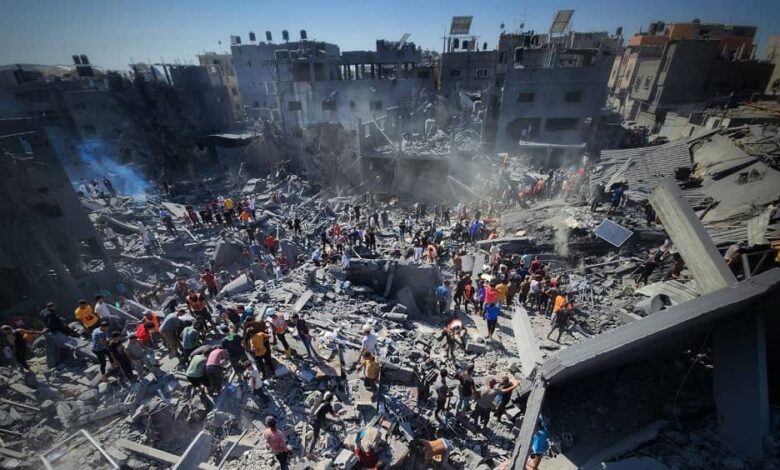Capitalizing on Middle East Conflict, Iran’s Regime Will Never Seize Betraying Palestinian Cause

palestine gaza destruction
Written by
Mahmoud Hakamian
After 40 days since the beginning of the Middle East crisis and the troubling conflict in Gaza, the “two-state solution” is once again being discussed in various capitals. Mahmoud Abbas, the head of the Palestinian government, is advocating for this solution based on existing international agreements, offering a glimmer of hope amid the turmoil of war and atrocities that have deeply impacted the global conscience.
However, amidst a global consensus involving Arab and Muslim nations, the United States, and European countries, there is a notable exception: the clerical dictatorship in Iran. This objection starkly reveals the regime’s active hostility towards the Palestinian government and the Palestinian Liberation Organization led by Mahmoud Abbas. Since the day that the two-state solution was proposed, Tehran has officially rejected it and has worked effectively to undermine any potential solution that could lead to stability in the Middle East by arming and funding those opposed to it.
On November 11, during the one-day emergency summit of Arab and Islamic countries in Riyadh, Saudi Arabia, a strong consensus on the two-state solution became evident. Mahmoud Abbas, addressing the summit, advocated for negotiations and emphasized the importance of the political roadmap.
My heartfelt condolences to the people & government of Palestine, and President Mahmoud Abbas, on the horrifying slaughter of innocent people and patients in the Gaza #Hospital.
Khamenei and Raisi are happy, thinking that they have achieved their goal. pic.twitter.com/GUZzwo5L0v— Maryam Rajavi (@Maryam_Rajavi) October 17, 2023
In contrast, the representative of the clerical dictatorship, Ebrahim Raisi, defied this global consensus by proposing the “one-state solution” upon returning from the Riyadh conference. As reported by Iranian state media, Raisi not only opposed the “two-state solution” but also described the “one-state solution” as “entirely democratic, based on the opinions of all Palestinians, whether Muslim, Christian, or Jewish, to determine their destiny.”
On November 13, Nasser Kanani, the spokesperson of the regime’s Foreign Ministry, rejected the two-state solution, stating, “Iran believes the only solution to the Palestinian issue is the formation of a unified Palestinian government from the sea to the river.”
Despite the regime in Iran having a track record of abolishing democratic norms and being one of the most repressive against religious minorities, it has further harmed the Palestinian Cause through treacherous actions, sowing discord, and undermining the unity of the Palestinian people. With deceptive gestures and anti-Israel rhetoric, the regime aims to sideline the role of the Palestinian government and its pursuit of a political solution.
Contrary to the assumption of many policymakers, the regime’s warmongering is not simply driven by hegemonic rivalry with other regional powers. The main reason for the regime’s efforts to undermine peace in the Middle East lies in its dire situation.
As the Iranian Resistance has emphasized for years, if the terrorist regime in Iran were to halt its warmongering in the Middle East, the very existence of its second, but better-funded and extensive military apparatus, known as the Islamic Revolutionary Guard Corps, along with its ambitious nuclear and missile programs, would be probed. The regime would then be forced to address a restive, oppressed, hungry, and impoverished population.
Therefore, attempting to persuade or intimidate the clerical regime to abandon its strategic survival mechanisms is as futile as the numerous failed doctrines witnessed over the past four decades. The only pathway to lasting peace in the Middle East is the removal of the regime whose existence relies on perpetuating war and terror.

